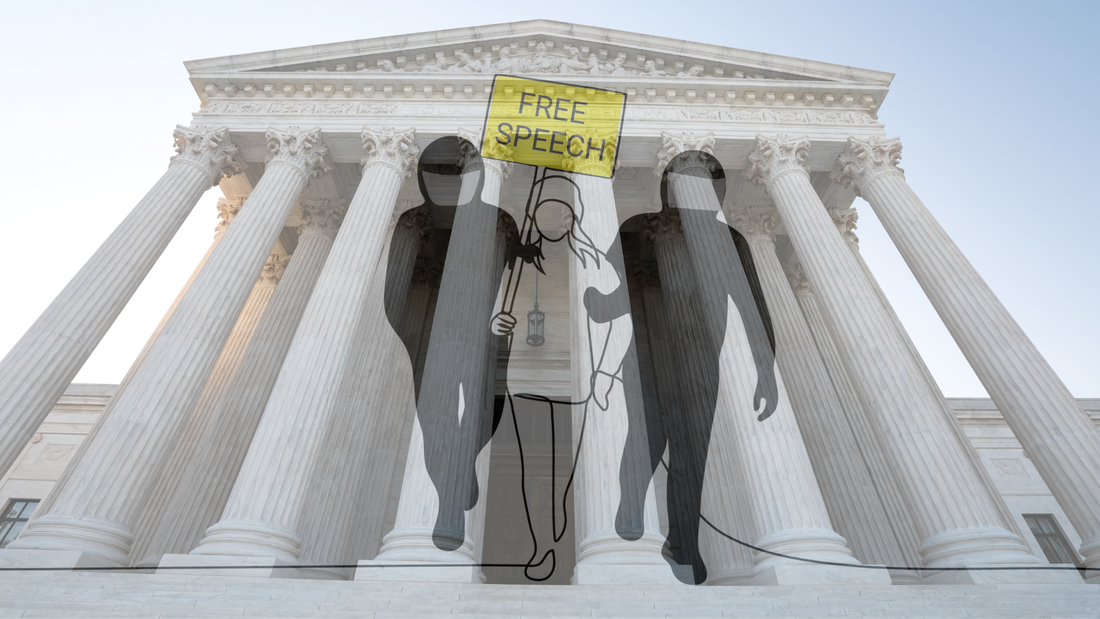|
In November, we reported on a controversy in the San Antonio suburb of Castle Hills, which epitomizes the growing trend of using the law to punish disfavored speech. The Supreme Court’s recent argument reveals several justices showing solidarity with the arrested party.
Here are the facts: Sylvia Gonzalez was elected to a seat on the Castle Hills city council in 2019. During her first council meeting, a resident submitted a petition to remove the city manager – a petition spearheaded by Gonzalez – and it wound up in Gonzalez’s personal binder of documents. After being asked for the petition by the mayor, Gonzalez found it among her effects and handed it over. The mayor initiated an investigation into Gonzalez under a Texas statute providing that “[a] person commits an offense if he […] intentionally destroys, conceals, removes, or otherwise impairs the verity, legibility, or availability of a governmental record.” A warrant was subsequently served against Gonzalez, who was taken to jail and resigned from the council in humiliation. Gonzalez claims her arrest was retaliatory – trumped-up charges based on a little enforced statute and stemming from her support for removing the city manager. At issue is a legal doctrine known as the “jaywalking exception,” which guards against law enforcement arresting people for protected speech under the guise of some other petty statutory violation. In Nieves v. Bartlett, the Supreme Court held that retaliatory arrest claims may proceed where probable cause exists – as it technically did with Gonzalez – but a plaintiff is arrested in a situation where officers “typically exercise their discretion not to do so.” In such circumstances, a plaintiff must present “objective evidence that he was arrested when otherwise similarly situated individuals not engaged in the same sort of protected speech had not been.” Attempting to satisfy the exception, Gonzalez presented evidence that not one of 215 grand jury felony indictments in Bexar County under a tampering statute over the preceding decade involved an allegation remotely similar to the one levied against her. The Fifth Circuit found this insufficient, holding that Nieves requires comparative evidence of individuals who engaged in the “same” criminal conduct but were not arrested. In other words, going by the Fifth Circuit’s interpretation, Gonzalez would have to find specific instances of people who misplaced government documents but were not arrested. How would anyone even find such instances? The Fifth Circuit tasked her with proving a negative. If the Fifth Circuit’s decision is left in place, Protect The 1st explained it would make it easier for law enforcement or other government officials to punish critics for expressing protected speech based on novel applications of relatively minor criminal laws. It also sets the evidentiary bar so high that few could ever hope to prove their case in a court of law. During oral arguments, several justices seemed to agree. Justice Gorsuch, speaking about the many unenforced statutes on the books, said: “You're saying they can all sit there unused, except for one person who alleges that ‘I was the only person in America who's ever been prosecuted for this because I dared express a view protected by the First Amendment,’ and that's not actionable?” Justice Kagan, clearly thinking along the same lines, said the plaintiff has “solid objective evidence” that they were treated differently than similarly situated persons, noting: “You should be able to say, ‘They've never charged somebody with this kind of crime before and I don't have to go find a person who has engaged in the same conduct.’” Justice Jackson made similar remarks, while Chief Justice Roberts, who authored Nieves, seemed to take the other side, questioning whether expanding the evidentiary basis for refuting probable cause is consistent with the Court’s earlier ruling. It “seems to me to be inconsistent,” he said. Justice Kavanaugh likewise noted, "If you intentionally stole a government document at a government proceeding — that's not nothing.” Why Gonzalez would want to hide a petition she helped organize is far from clear. Her conduct was so benign that the only inference one can reasonably draw is that she was the target of retaliation. Protect The 1st hopes the Court sides with her and makes it clear they will hold public officials accountable for weaponizing the law against those who speak their minds. Comments are closed.
|
Archives
June 2024
Categories
All
|
ABOUT |
ISSUES |
TAKE ACTION |



 RSS Feed
RSS Feed